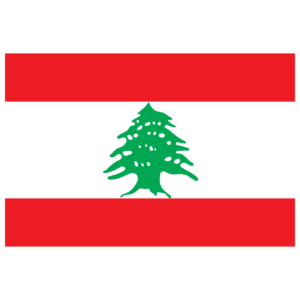No Demand No Supply
Synopsis and Significance:
On the 27th of March 2016, the inquisitorial commission in Mount Lebanon raided “Chez Maurice” and “Silver” brothels in Jounieh area, east of Beirut, and saved seventy-five Syrian refugee women from what became known later as the largest sex trafficking network in the history of Lebanon. The story gained huge media attention as the women told horrifying stories about the torture and abuse they suffered at the hands of one of the lead figures of the network, which was making more than one million dollars a month according to the police reports. Few weeks after the uncovering of the story, the media lost interest in it and slowly it started fading into oblivion. No Demand No Supply aims at giving voice to the women’s stories while shedding light on an aspect that was totally disregarded in the mainstream media: the sex buyer. The play is still as relevant today as it was in 2017. The court hearings are still in progress. So far, almost three years after closing down the brothels, seven court hearings took place in which nothing really happened because some of the accused are simply not showing up at the court. The victims are still waiting for justice while Imad Al-Rihawi, the trafficker who was in charge of managing the network and torturing the women, was released on a 20 million Lebanese pound (approximately 13 thousand dollars) bail on June 20, 2017, and Fawaz Ali Al-Hassan, the head of the network, was never caught.
Playwright’s Country of Origin:

LEBANON
Production History
No Demand No Supply was originally presented on April 8, 2016 as the closing event of the Center for Arts and Humanities – Mellon Grant conference “URBICIDE II: Syria, Iraq, Yemen, Palestine – Postwar Reconstruction” at the American University of Beirut. Then it had a second performance at Lebanese American University’s Irwin Theatre on May 26, 2017 hosted by the The Arab Institute for Women – AiW and at Al Madina Theatre on July 4, 2017. Later same year it got selected to participate in Between the Seas Festival in Athens (Sept 15, 2017). Excerpts of the play were read at Martin Segal Theatre Center in October 2017. In 2019, NDNS participated in Between the Seas Festival in its NYC edition at Theaterlab on May 19 thanks to a grant from the U.S. Embassy Beirut and the Department of State. A staged reading of the play directed by Rachel Valentine Smith was presented on July 13, 2019 Shubbak Festival in London. A series of performances took place at Zoukak Studio in Beirut between September and October of 2019.
—
No Demand No Supply uses material from:
a. Audio recorded interviews with two Syrian women survivors from ‘Chez Maurice’ and ‘Silver’ sex trafficking rings in 2016 on April 10, 2017, conducted by Sahar Assaf and on May 12 by Assaf and Ghada Jabbour.
b. Video recorded interviews with eight Syrian women survivors conducted by Sandy Issa, an investigative reporter at Al Taharri, during April 2016.
c. Audio recorded interviews with Sandy Issa and Ghada Jabbour (Head of the Trafficking and Exploitation Unit at Kafa Organization), conducted by Sahar Assaf.
d. Interviews with Colonel Mustafa Badran who took the decision to raid the brothels where the women were imprisoned, conducted by Sahar Assaf.
e. The indictment issued on November 28, 2016.
f. A study conducted by Kafa Organization in 2014 under the title “Exploring the Demand for Prostitution: What male buyers say about their motives, practices, and perceptions” by Ghada Jabbour.
The performance uses Alecky Blythe’s “recorded delivery technique” which involves editing real-life interviews into the desired structure. In recorded delivery performances actors on stage listen to live audio recordings through earphones and repeat exactly what they hear.
NDNS was selected as the piece of the year by L’Orient le Jour:
“If Jean Genet had spoken in “Le Balcon” (The Balcony) using modern Racinian (related to the French classical author Racine) terms about brothels, Sahar Assaf tackles the theme with astonishing simplicity and depth through a theatrical documentary at Studio Zoukak…It is an intense play, supported by the NGO Kafa, that speaks volumes about the state of disrepair and immorality in a country where nothing is under control.” https://www.lorientlejour.com/article/1200318/culture-the-19-hits-of-2019-in-lebanon.html
Name of the Playwright in English
Year of Writing
Year of the First Staging

